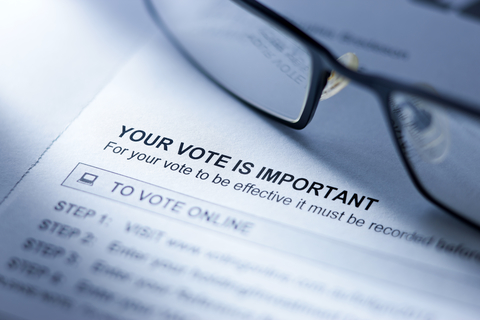The SEC is issuing new interpretation and guidance concerning proxy rules which were promulgated by Section 14 of the Securities Exchange Act of 1934. This new guidance is the result of the SEC examining proxy voting advice provided by proxy advisory firms as possible solicitations under the federal proxy laws. In addition, the SEC has considered public comments on a variety of issues related to the proxy voting process, from numerous public concept releases to a 2018 Roundtable that invited the public to provide feedback on the use of proxy advisory firms and their activities.
Specifically, the new interpretation addresses two questions:
Does proxy voting advice provided by a proxy advisory firm constitute a solicitation under the federal proxy rules?
The SEC states that this is generally the case. Exchange Act Section 14(a) applies to any solicitation for a proxy with respect to any security registered under Exchange Act Section 12. This section also authorizes the SEC to establish rules and regulations governing these solicitations to the benefit and protection of the public interest and investors. Under Exchange Act Rule 14a-1(1), the SEC broadly defined the term “solicitation” to include, among other things, a “communication to security holders under circumstances reasonably calculated to result in the procurement, withholding, or revocation of a proxy.”

The SEC has previously extended this definition to any person seeking to influence the voting of proxies by shareholders, regardless of whether or not the person is seeking authorization to act as a proxy. Therefore, that person may be engaging in solicitation even when said person is not trying to procure, withhold, or revoke a proxy itself. This still applies even when the person who is trying to influence the result has no interest in that result. These statements then also apply to proxy advisory firms because they provide recommendations that are reasonably calculated to result in the procurement, withholding, or revocation of a proxy. Therefore, the SEC is suggesting that the furnishing of proxy advice falls under the definition of solicitation within the meaning of Exchange Act Rule 14a-1.
In terms of particular communications, they become solicitations based on “the purpose for which the communication was published”. Proxy voting advice from proxy advisory firms given to their clients generally describes the specific proposals to be presented at the registrant’s next meeting and recommends particular voting actions. These recommendations may be disseminated online and often incur a fee. The SEC contends that, as a fiduciary, an investment advisor owes each of its clients a duty of care and loyalty with respect to services undertaken on the client’s behalf, including voting. This is particularly since their recommendations are likely to be delivered right before shareholder meetings and are proffering to their clients advice and information likely to influence the vote.
Therefore, the SEC is deeming these communications, which are marketed by these investment advisor firms as expert research and analytics of proxy issues, should be considered as solicitations and therefore subject to federal proxy rules. Communications that contain only administrative or ministerial work are not considered solicitations. The new guidance is also not intended to limit or restrict the reliance on particular exemptions from filing and disclosure requirements available to those engaged in these solicitation roles.
Does Exchange Act Rule 14a-9 apply to proxy voting advice?
The SEC states that it does. Solicitations that are exempt from the federal proxy rules’ information and filing requirements remain subject to Exchange Act Rule 14a-9. This rule prohibits solicitation from containing any statement which is false and misleading toward any material fact at the time and under the circumstances in which it is made. In addition, information is necessary to make the statements not false or misleading cannot be omitted. Rule 14a-9 also extends to opinions, reasons, recommendations, or beliefs that are disclosed as part of the
solicitation. This may require disclosure of other information to support these statements. Accordingly, any person involved in the solicitation must not make materially false or misleading statements or omit relevant facts. The following types of information may be required for disclosure to prevent violating Rule 14a-9:
- an explanation of the methodology used to formulate voting advice on a particular matter (including any material deviations from publicly-announced guidelines, policies, or standard methodologies for analyzing such matters)
- the extent that the proxy voting advice is based on information other than the registrant’s public disclosures, such as third-party information sources. This may include disclosure about these sources and the extent to which they differ from the registrant’s public disclosures
- disclosure about material conflicts of interest in connection with providing the proxy voting advice in sufficient detail so the relevance of those conflicts can be assessed
For more information on the SEC’s guidance on proxy voting and solicitation, see the complete release here. The interpretations become effective immediately upon publication in the Federal Register.
Sources:
Commission Interpretation and Guidance Regarding the Applicability of the Proxy Rules to Proxy Voting Advice (www.sec.gov)



